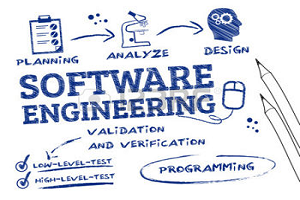Course Syllabus
-
Fundamental of design concepts, design notations, and architectural design methods for large-scale software systems. Several design: examples of their use, comparisons among them. Concepts of information hiding, data abstraction, concurrency, and object-oriented software construction.
Reference Textbooks
- Software Engineering: A Practitioner’s Approach, by Roger S. Pressman, 7th Edition Mc-Graw Hill, 2005.
- Software Engineering, by Ian Summerville, 8th Edition, Addison Wesley, 2006.
Course Materials
- Chapter 01: Software and Software Engineering
- Chapter 02: Process Models
- Chapter 03: Agile Development
- Chapter 04: Principles that Guide Practice
- Chapter 05: Understanding Requirements
- Chapter 06: Requirements Modeling: Scenarios, Information, and Analysis Classes
- Chapter 07: Requirements Modeling: Flow, Behavior, Patterns, and WebApps
- Chapter 08: Design Concepts
- Chapter 09: Architectural Design
- Chapter 10: Component-Level Design
- Chapter 11: User Interface Design
- Chapter 12: Pattern-Based Design
- Chapter 13: WebApp Design
- Chapter 14: Quality Concepts
- Chapter 15: Review Techniques
- Chapter 16: Software Quality Assurance
- Chapter 17: Software Testing Strategies
- Chapter 18: Testing Conventional Applications
- Chapter 19: Testing Object-Oriented Applications
- Chapter 20: Testing Web Applications
Students' Grade

